

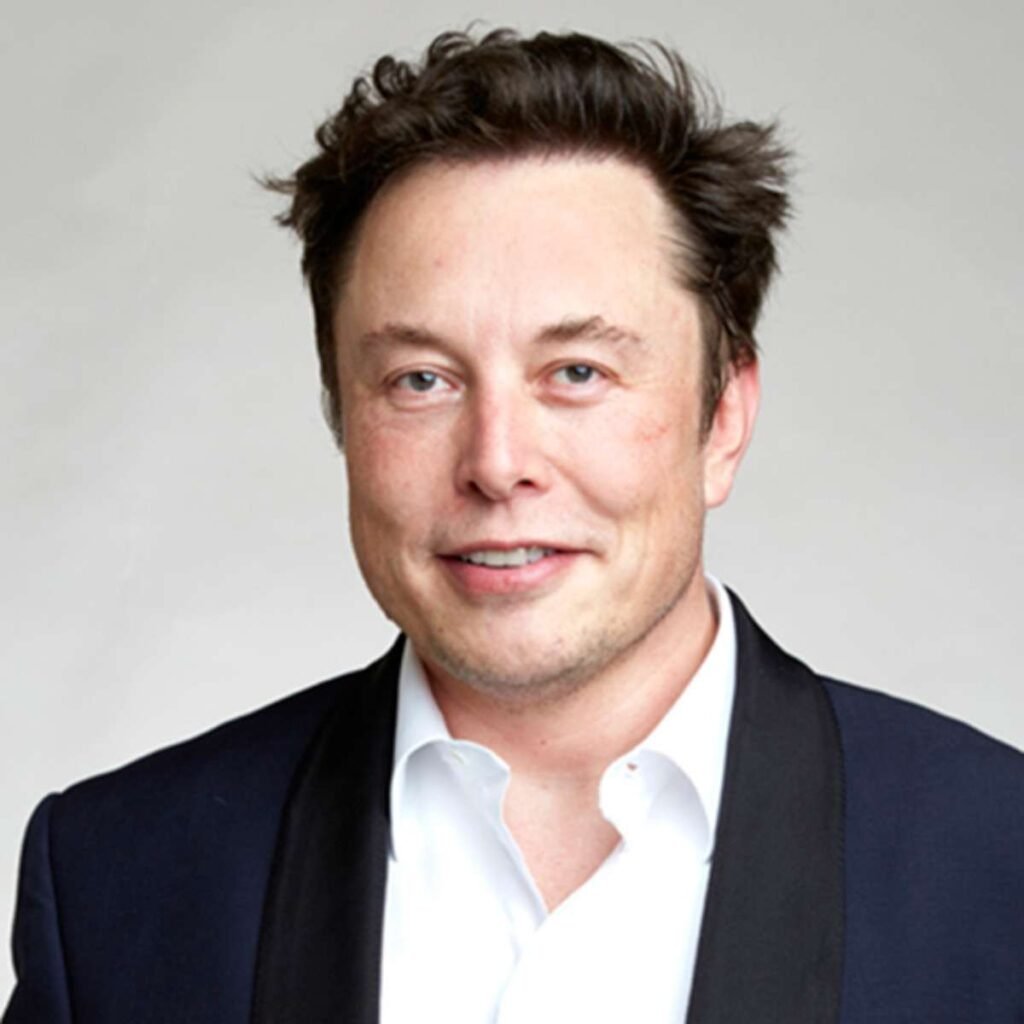
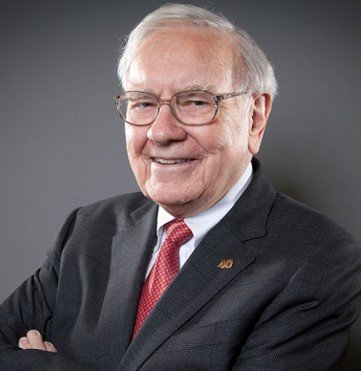

Dive into the World of Finance
Welcome to our comprehensive collection of finance expertise, where you can dive into the world of finance and gain valuable insights from 20 industry titans. Whether you’re a seasoned investor or just starting out, there’s something for everyone here. Explore investment strategies, success stories, and wealth management tips from financial leaders. Gain valuable market insights, economic perspectives, and business wisdom from these visionary experts.
Explore Investment Strategies
When it comes to investing, having a solid strategy is key. In this collection, you’ll find a wealth of information on different investment strategies that have been proven successful by industry titans. From value investing to growth investing, from dividend investing to index fund investing, there are various approaches you can explore to help you achieve your financial goals. Learn from seasoned professionals about portfolio management, risk assessment, and market analysis.
Success Stories and Wealth Management Tips
One of the best ways to learn about finance is by hearing from those who have achieved financial success. In this collection, you’ll find inspiring success stories from industry titans who have made their mark in the financial world. Discover the journeys of these influential figures and unlock the keys to financial success. Additionally, you’ll find wealth management tips from these financial leaders, providing you with valuable insights on how to effectively manage your wealth and make it grow.
Business Wisdom from Visionary Experts
Running a successful business requires more than just financial knowledge. It requires strategic thinking, leadership skills, and the ability to adapt to changing market conditions. In this collection, you’ll find business wisdom from visionary experts who have achieved great success in their respective industries. Learn from their experiences and gain valuable insights on how to build and grow a successful business.
Whether you’re looking to expand your knowledge in finance, gain insights from industry titans, or learn about successful investment strategies, this collection has something for everyone. Dive into the world of finance and unlock the secrets to financial success.
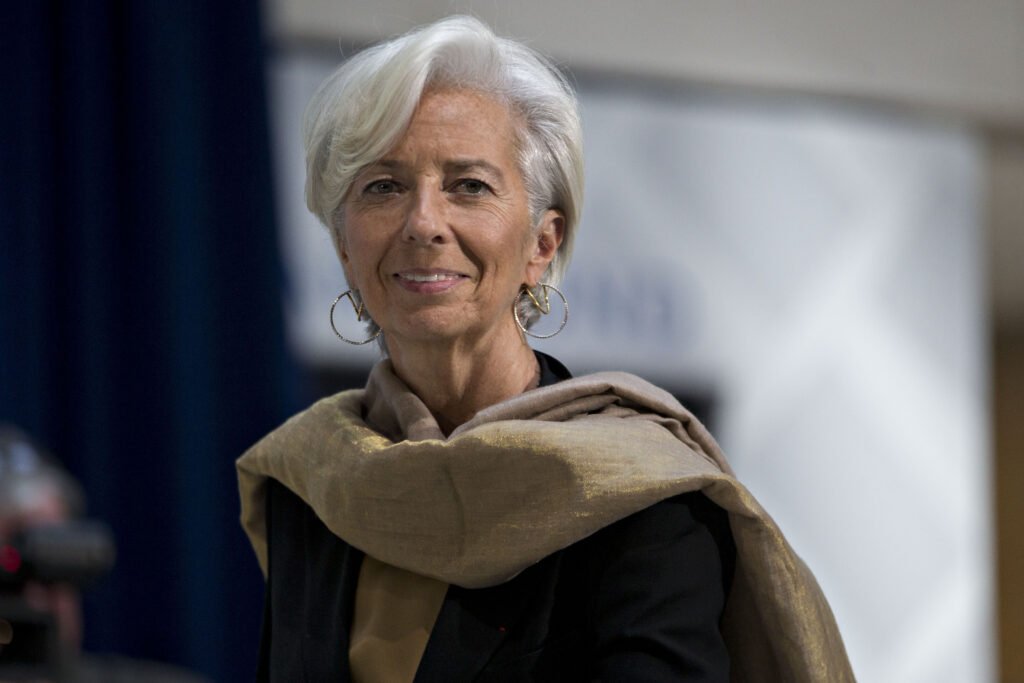



1-Warren Buffett
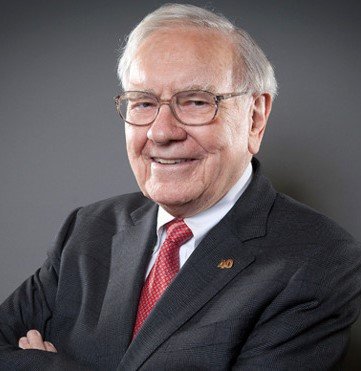
Warren Buffett, the renowned investor, and philanthropist, is widely regarded as one of the most successful businessmen of all time. As the Chairman and CEO of Berkshire Hathaway, Buffett’s investment strategies and business acumen have made him a household name in the world of finance. In this article, we’ll delve into some key insights from Warren Buffett’s career and philosophy.
Early Life and Career Beginnings
Warren Buffett was born in Omaha, Nebraska, in 1930. From a young age, he showed a keen interest in business and investing. Buffett purchased his first stock at the age of 11 and filed his first tax return at the age of 13. He attended the University of Pennsylvania’s Wharton School but later transferred to the University of Nebraska, where he graduated with a degree in business administration.
After completing his education, Buffett worked as an investment salesman before starting his own investment partnership. In 1965, he took control of Berkshire Hathaway, a struggling textile company, and transformed it into a diversified holding company.
Investment Philosophy
Buffett is known for his value investing approach, which focuses on buying undervalued stocks of strong companies and holding them for the long term. He famously said, “Our favorite holding period is forever.” Buffett seeks companies with a durable competitive advantage, strong management teams, and attractive valuations.
One of Buffett’s most famous pieces of advice is to “be fearful when others are greedy and greedy when others are fearful.” This reflects his contrarian approach to investing, where he sees market downturns as opportunities to buy quality assets at discounted prices.

Business Leadership
As the CEO of Berkshire Hathaway, Buffett has built a culture of long-term thinking and responsible stewardship. He believes in decentralization and hires capable managers to run Berkshire’s subsidiaries autonomously. This allows him to focus on capital allocation and strategic decisions.
Buffett is also known for his down-to-earth and frugal lifestyle, despite his immense wealth. He famously lives in the same modest house he bought in the 1950s and prefers simple pleasures like hamburgers and Cherry Coke.
Philanthropy
In addition to his business success, Buffett is a committed philanthropist. In 2006, he pledged to donate the majority of his wealth to charitable causes, primarily through the Bill & Melinda Gates Foundation. His generosity has had a significant impact on global health, education, and poverty alleviation.
Conclusion
Warren Buffett’s career and investment philosophy serve as a source of inspiration for investors and entrepreneurs worldwide. His emphasis on long-term thinking, value investing, and responsible leadership has stood the test of time and continues to guide investors seeking to build wealth and create lasting value.
2-Elon Musk
Elon Musk, the CEO of Tesla and SpaceX, is a visionary entrepreneur known for his ambitious pursuits in electric vehicles, space exploration, and renewable energy. In this article, we’ll delve into Musk’s remarkable career, his innovative companies, and the impact he has made on multiple industries.
Early Life and Education
Elon Musk was born in Pretoria, South Africa, in 1971. From a young age, he displayed exceptional intelligence and a passion for technology. Musk taught himself computer programming and, at the age of 12, sold his first software, a space-themed video game called Blastar. After studying physics and economics at the University of Pennsylvania, Musk pursued a Ph.D. in energy physics at Stanford University. However, he dropped out after just two days to pursue his entrepreneurial ambitions.
Founding PayPal and Zip2
In the late 1990s, Musk co-founded Zip2, a software company that provided business directories and maps for newspapers. He sold Zip2 in 1999 for $307 million and used the proceeds to co-found X.com, an online payment company. X.com later became PayPal, which revolutionized online payments and was acquired by eBay for $1.5 billion in 2002.

Tesla Motors: Revolutionizing the Automotive Industry
In 2004, Musk founded Tesla Motors with the goal of accelerating the world’s transition to sustainable energy. Tesla quickly gained attention for its groundbreaking electric vehicles (EVs) like the Model S, Model 3, and Model X. Musk’s leadership has propelled Tesla to the forefront of the automotive industry, with innovations in battery technology, autonomous driving, and energy storage.
SpaceX: Pushing the Boundaries of Space Exploration
In 2002, Musk founded SpaceX with the mission of making space travel more affordable and enabling the colonization of Mars. Despite facing numerous setbacks, SpaceX has achieved several milestones under Musk’s leadership, including the development of the Falcon 1, Falcon 9, and Falcon Heavy rockets, as well as the Dragon spacecraft. SpaceX has become a key player in the space industry, regularly launching satellites, resupplying the International Space Station, and working towards crewed missions to Mars.
Other Ventures and Initiatives
In addition to Tesla and SpaceX, Musk is involved in several other ventures and initiatives. He co-founded SolarCity, a solar energy company that Tesla acquired in 2016. Musk is also working on projects such as Neuralink, which aims to develop brain-computer interface technology, and The Boring Company, which focuses on tunnel construction and transportation solutions.
Conclusion
Elon Musk’s visionary leadership and relentless pursuit of innovation have revolutionized multiple industries. From electric vehicles to space exploration, Musk’s companies are pushing the boundaries of what is possible and inspiring future generations of entrepreneurs and engineers. As he continues to pursue his bold vision for the future, Musk remains one of the most influential and admired figures in the world of technology and business.
3-Ray Dalio
Ray Dalio, the founder of Bridgewater Associates, is a titan in the world of finance and investment. His unique investment principles and philosophies have earned him widespread acclaim and made Bridgewater one of the most successful hedge funds in history. In this article, we’ll explore the life, career, and insights of Ray Dalio.
Early Life and Career Beginnings
Ray Dalio was born in 1949 in Queens, New York. He began investing at a young age and studied finance at Long Island University before earning an MBA from Harvard Business School. After graduating, Dalio worked on the floor of the New York Stock Exchange and later as the Director of Commodities at Dominick & Dominick LLC.
In 1975, Dalio founded Bridgewater Associates from his apartment in New York City. He initially focused on currency and bond markets, using a unique approach that combined macroeconomic analysis with fundamental research.
Principles of ‘Radical Transparency’
One of Dalio’s key principles is “radical transparency,” which emphasizes open communication and honesty within the organization. At Bridgewater, employees are encouraged to challenge each other’s ideas openly, leading to a culture of constructive criticism and continual improvement.
The All Weather and Pure Alpha Strategies
Bridgewater’s success is built on its innovative investment strategies. The firm is best known for its “All Weather” and “Pure Alpha” strategies. The All Weather strategy aims to provide consistent returns in all market environments by diversifying across asset classes, while the Pure Alpha strategy seeks to generate alpha by betting on macroeconomic trends.
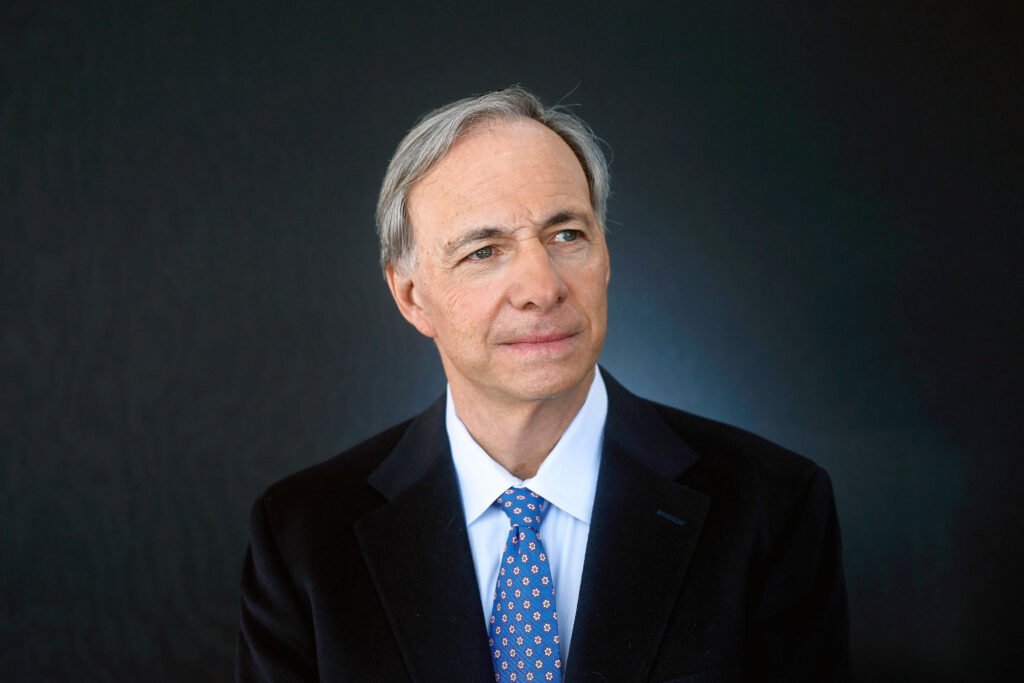
Dalio’s Principles for Success
Ray Dalio has outlined his principles for success in his book “Principles: Life and Work.” These principles, which he applies to both investing and life, include embracing reality, being radically open-minded, and constantly evolving through feedback and reflection.
Philanthropy and Legacy
In addition to his work at Bridgewater, Dalio is actively involved in philanthropy. He and his wife, Barbara, have signed the Giving Pledge, promising to donate the majority of their wealth to charitable causes. They have focused their philanthropic efforts on education, health, and microfinance initiatives.
Conclusion
Ray Dalio’s journey from a young investor to the founder of the world’s largest hedge fund is a testament to his entrepreneurial spirit and innovative thinking. His commitment to radical transparency, his innovative investment strategies, and his dedication to philanthropy have cemented his legacy as one of the most influential figures in finance. As investors and leaders seek guidance in navigating the complexities of the financial world, the wisdom of Ray Dalio continues to be a beacon of insight and inspiration.
4-Jeff Bezos
Jeff Bezos, the founder of Amazon and former CEO, is a visionary leader whose impact on e-commerce and technology has reshaped industries and revolutionized the way people shop and consume content. In this article, we’ll delve into Bezos’s journey, his entrepreneurial spirit, and the lasting legacy he leaves behind.
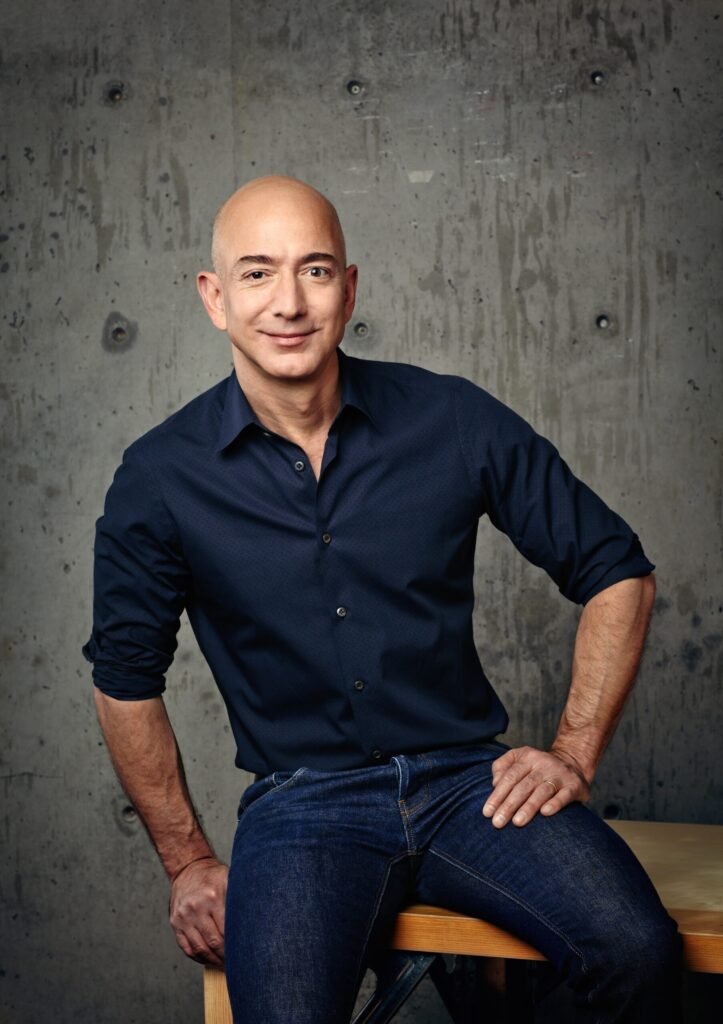
Early Life and Education
Born in Albuquerque, New Mexico, in 1964, Jeff Bezos showed an early interest in science and technology. He graduated from Princeton University with degrees in electrical engineering and computer science, laying the groundwork for his future ventures in the tech industry.
Founding Amazon: From Garage Startup to Global Giant
In 1994, Bezos founded Amazon.com, an online bookstore, in his garage in Seattle, Washington. The company quickly expanded its offerings to include a wide range of products, becoming the world’s largest online retailer. Bezos’s relentless focus on customer satisfaction and his willingness to take risks propelled Amazon’s growth, turning it into a global powerhouse.
Innovation and Disruption
Under Bezos’s leadership, Amazon became known for its relentless pursuit of innovation and disruption. The company introduced groundbreaking services like Amazon Prime, which offers fast shipping and exclusive content, and Amazon Web Services (AWS), the world’s leading cloud computing platform. Bezos also led Amazon into new industries, including digital streaming, artificial intelligence, and healthcare.
Leadership Style and Philosophy
As CEO, Bezos was known for his long-term thinking and customer-centric approach. He famously emphasized the importance of maintaining a “Day 1” mentality, where the company remains agile, innovative, and customer-focused, even as it grows. Bezos encouraged risk-taking and experimentation, famously saying, “If you double the number of experiments you do per year, you’re going to double your inventiveness.”
Transition to Space Exploration and Philanthropy
In 2021, Bezos stepped down as CEO of Amazon to focus on other ventures, including his space exploration company, Blue Origin. He has expressed a long-standing interest in space travel and hopes to make it more accessible to future generations. Bezos is also active in philanthropy, launching initiatives like the Bezos Earth Fund to combat climate change and investing in education and healthcare.
Legacy and Impact
Jeff Bezos’s impact on the business world is undeniable. His entrepreneurial spirit, relentless innovation, and customer obsession have set a new standard for success in the digital age. As he transitions to new endeavors, Bezos leaves behind a legacy of disruption and transformation that will continue to shape industries and inspire entrepreneurs for years to come.
5-Christine Lagarde
Christine Lagarde, the President of the European Central Bank (ECB), is a prominent figure in global finance, known for her leadership, economic expertise, and commitment to stability. In this article, we’ll explore Lagarde’s background, her tenure at the ECB, and the challenges she faces in guiding the Eurozone’s monetary policy.
Early Career and Rise to Prominence
Christine Lagarde was born in Paris, France, in 1956. She studied law and political science at university before embarking on a career in law and finance. Lagarde worked as a lawyer and served in various government positions in France before being appointed as the Minister of Economic Affairs, Finance, and Industry in 2007.
Managing Director of the International Monetary Fund
In 2011, Lagarde became the first woman to serve as the Managing Director of the International Monetary Fund (IMF). During her tenure, she played a key role in navigating the global financial crisis and addressing economic challenges in various countries. Lagarde’s leadership at the IMF earned her widespread praise for her crisis management skills and diplomatic acumen.
Appointment as President of the European Central Bank
In 2019, Lagarde succeeded Mario Draghi as the President of the European Central Bank, becoming the first woman to hold the position. She took office at a challenging time for the Eurozone, with sluggish economic growth, low inflation, and political uncertainties.

Monetary Policy and Economic Challenges
As President of the ECB, Lagarde faces the daunting task of steering the Eurozone’s monetary policy amid economic challenges such as the COVID-19 pandemic, Brexit, and geopolitical tensions. Lagarde has emphasized the importance of supporting economic recovery while maintaining price stability and financial stability.
Under Lagarde’s leadership, the ECB has implemented various monetary measures, including asset purchases and interest rate cuts, to support the economy and ensure liquidity in financial markets. She has also advocated for fiscal stimulus and structural reforms to complement monetary policy efforts and boost long-term growth.
Commitment to Sustainability and Digital Innovation
Lagarde has made sustainability and digital innovation key priorities for the ECB. She has called for integrating environmental considerations into monetary policy decisions and has supported initiatives to promote green finance and combat climate change.
In addition, Lagarde has emphasized the potential of digitalization to transform the financial sector and improve payment systems. She has encouraged innovation in fintech and digital currencies while ensuring that regulatory frameworks remain robust and consumer protection is upheld.
Conclusion
Christine Lagarde’s leadership at the European Central Bank reflects her deep commitment to stability, sustainability, and innovation in the face of economic challenges. As she navigates the complexities of monetary policy and guides the Eurozone through uncertain times, Lagarde’s expertise and vision will continue to shape the future of Europe’s economy and financial system.
6-Larry Fink
Larry Fink, the CEO of BlackRock, is a titan in the world of finance, known for his influence on global markets, his advocacy for sustainable investing, and his role in shaping corporate governance. In this article, we’ll explore Fink’s background, his leadership at BlackRock, and his impact on the financial industry.
Early Life and Career
Larry Fink was born in Los Angeles, California, in 1952. He studied political science at the University of California, Los Angeles, and later earned an MBA from the Anderson School of Management at UCLA. Fink began his career at First Boston Corporation (now Credit Suisse), where he rose to prominence as a bond trader.
Founding BlackRock
In 1988, Fink co-founded BlackRock, initially as a risk management and fixed-income asset management firm. Under his leadership, BlackRock expanded its services to become the world’s largest asset manager, with a diverse range of investment products and solutions.
Influence on Global Markets
As CEO of BlackRock, Fink wields significant influence over global financial markets. BlackRock manages trillions of dollars in assets for institutional and individual investors worldwide, giving Fink a unique platform to shape investment trends and market dynamics.

Advocacy for Sustainable Investing
Fink has been a vocal advocate for sustainable investing, urging companies to consider environmental, social, and governance (ESG) factors in their business practices. In his annual letter to CEOs, Fink emphasizes the importance of long-term value creation and the need for companies to address climate change, diversity, and other societal issues.
Under Fink’s leadership, BlackRock has launched ESG-focused investment products, engaged with companies on sustainability issues, and integrated ESG considerations into its investment processes. Fink believes that companies that effectively manage ESG risks and opportunities will outperform over the long term.
Role in Corporate Governance
Fink is also a leading voice on corporate governance, advocating for transparency, accountability, and shareholder rights. He has called on companies to focus on long-term strategy, align executive compensation with performance, and improve board diversity.
Through BlackRock’s stewardship activities, Fink and his team engage with companies on governance issues, vote on shareholder resolutions, and push for improvements in corporate practices. Fink believes that strong governance enhances shareholder value and contributes to sustainable long-term growth.
Conclusion
Larry Fink’s leadership at BlackRock has had a profound impact on the financial industry and beyond. As CEO, he has positioned BlackRock as a global leader in asset management, while also championing sustainable investing and corporate governance reform. Fink’s influence extends far beyond the walls of BlackRock, shaping the future of finance and advancing the cause of responsible capitalism.
7-Jamie Dimon
Jamie Dimon, the CEO of JPMorgan Chase, stands as one of the most influential figures in the banking industry. His leadership, strategic vision, and resilience have guided JPMorgan Chase through turbulent times and positioned the bank as a global powerhouse. In this article, we’ll explore Dimon’s background, his tenure at JPMorgan Chase, and his impact on the financial sector.
Early Life and Education
Jamie Dimon was born in New York City in 1956. He graduated from Tufts University with a degree in economics and later earned an MBA from Harvard Business School. Dimon’s early career saw him working at several prestigious financial institutions, including American Express and Citigroup.
Rise to CEO of JPMorgan Chase
Dimon joined JPMorgan Chase in 2004 as President and Chief Operating Officer and quickly rose through the ranks to become CEO in 2005. Under his leadership, JPMorgan Chase weathered the global financial crisis of 2008 with relative strength compared to its peers, thanks to Dimon’s conservative risk management practices and prudent decision-making.
Strategic Vision and Growth
As CEO, Dimon has led JPMorgan Chase with a focus on long-term strategic growth. He has overseen the expansion of the bank’s global footprint, the diversification of its business lines, and the adoption of innovative technologies to better serve customers.
Under Dimon’s leadership, JPMorgan Chase has become the largest bank in the United States by assets and one of the most profitable banks in the world. Dimon’s strategic acquisitions, such as the purchase of Bear Stearns and Washington Mutual during the financial crisis, have helped solidify JPMorgan Chase’s position as a leading financial institution.
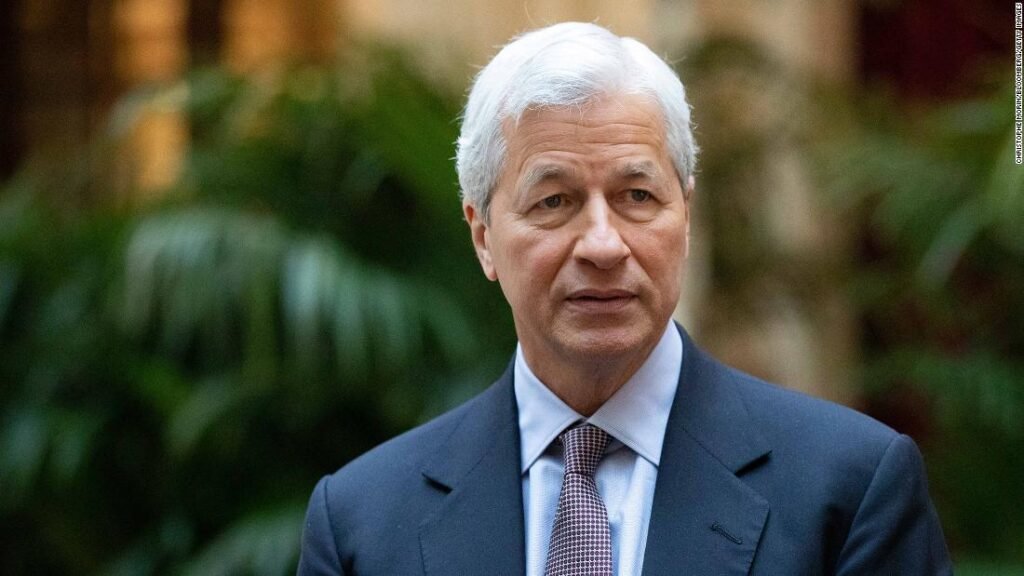
Commitment to Corporate Responsibility
Dimon has been a vocal advocate for corporate responsibility and social impact. He has championed initiatives to promote diversity and inclusion within JPMorgan Chase and has been a strong supporter of philanthropic efforts aimed at addressing economic inequality and improving access to education and healthcare.
Under Dimon’s leadership, JPMorgan Chase has launched initiatives to support small businesses, invest in underserved communities, and combat climate change. Dimon believes that businesses have a responsibility to contribute positively to society while delivering value to shareholders.
Navigating Challenges and Looking to the Future
Throughout his tenure, Dimon has navigated numerous challenges, including regulatory scrutiny, economic downturns, and the recent COVID-19 pandemic. His leadership during times of crisis has been characterized by decisiveness, transparency, and a focus on protecting the interests of JPMorgan Chase’s clients, employees, and shareholders.
Looking to the future, Dimon remains committed to driving innovation, fostering talent, and delivering sustainable growth at JPMorgan Chase. His strategic vision and unwavering dedication to excellence continue to inspire confidence in the bank’s ability to navigate whatever challenges lie ahead.
Conclusion
Jamie Dimon’s leadership at JPMorgan Chase exemplifies the qualities of vision, resilience, and integrity that define successful leaders in the banking industry. His strategic guidance has positioned JPMorgan Chase as a global leader in finance, while his commitment to corporate responsibility underscores the importance of ethical leadership in today’s business world. As Dimon continues to lead JPMorgan Chase into the future, his legacy as one of the most influential figures in banking is assured.
8-Bill Gates
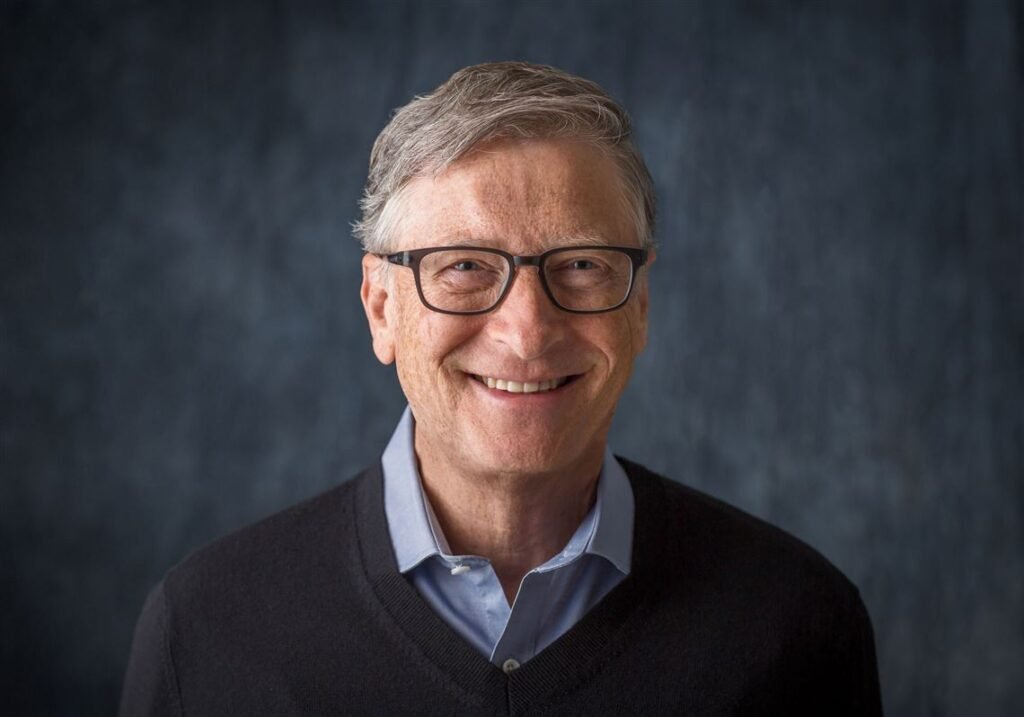
Bill Gates, the co-founder of Microsoft and a leading philanthropist, has left an indelible mark on the world through his pioneering work in technology and his commitment to global health and education. In this article, we’ll delve into Gates’s remarkable journey, his contributions to the tech industry, and his philanthropic endeavors.
Early Life and Career
Bill Gates was born in Seattle, Washington, in 1955. He developed an early interest in computers and programming, and by the age of 13, he had already written his first software program. Gates attended Harvard University but dropped out to pursue his passion for computer software. In 1975, he co-founded Microsoft with his childhood friend Paul Allen, laying the foundation for what would become one of the world’s largest and most influential technology companies.
Microsoft: Revolutionizing the Personal Computer
Under Gates’s leadership, Microsoft played a pivotal role in the development of the personal computer revolution. The company’s operating system, MS-DOS, and later Windows, became ubiquitous platforms that transformed the way people work, communicate, and access information. Microsoft’s software products, including Word, Excel, and PowerPoint, have become essential tools for businesses and individuals worldwide.
Philanthropy: A Commitment to Global Health and Education
In 2000, Gates and his wife, Melinda, co-founded the Bill & Melinda Gates Foundation, with a mission to improve global health, reduce poverty, and expand educational opportunities. The foundation has invested billions of dollars in initiatives to combat infectious diseases, improve maternal and child health, and enhance access to education and technology in developing countries.
One of the foundation’s most notable achievements is its work to eradicate polio, a goal that Gates has been passionately pursuing for decades. Through partnerships with governments, NGOs, and other organizations, the Gates Foundation has made significant progress towards eradicating the disease, bringing the world closer than ever to achieving this historic milestone.
Global Leadership and Advocacy
In addition to his philanthropic work, Gates is a vocal advocate for issues such as climate change, global health security, and access to technology. He uses his platform to raise awareness about pressing global challenges and to mobilize resources and support for solutions.
Gates has also been a strong proponent of innovation and entrepreneurship, believing that technology can be a powerful force for positive change. He has invested in numerous ventures aimed at tackling some of the world’s most pressing problems, from renewable energy to agricultural productivity.
Legacy and Impact
Bill Gates’s legacy extends far beyond the technology industry. His vision, leadership, and philanthropy have had a transformative impact on global health, education, and development. Through his pioneering work at Microsoft and his dedication to philanthropy, Gates has inspired countless individuals and organizations to work towards a better future for all.
As Gates continues to dedicate his time and resources to addressing the world’s most pressing challenges, his legacy as a visionary thinker, innovator, and humanitarian will endure for generations to come.
9-Janet Yellen

Janet Yellen, the United States Secretary of the Treasury and former Chair of the Federal Reserve, is a distinguished economist and policymaker with a long and illustrious career in public service. In this article, we’ll explore Yellen’s background, her tenure at the Federal Reserve, and her current role as the nation’s top economic official.
Early Life and Education
Janet Yellen was born in Brooklyn, New York, in 1946. She earned her bachelor’s degree in economics from Brown University and went on to complete her Ph.D. in economics at Yale University. Yellen’s academic research focused on labor markets, monetary policy, and macroeconomics, laying the foundation for her future career in economics and public policy.
Leadership at the Federal Reserve
Yellen’s career at the Federal Reserve spanned over two decades. She served as a member of the Board of Governors from 1994 to 1997 and again from 2010 to 2014. In 2014, Yellen made history when she became the first woman to serve as Chair of the Federal Reserve, succeeding Ben Bernanke.
As Chair, Yellen played a central role in guiding U.S. monetary policy during a period of economic recovery and normalization following the global financial crisis. She implemented a gradual approach to raising interest rates and unwinding the Fed’s balance sheet while maintaining a focus on achieving the Fed’s dual mandate of price stability and maximum employment.
United States Secretary of the Treasury
In January 2021, Janet Yellen was sworn in as the 78th United States Secretary of the Treasury, making her the first woman to hold the position in U.S. history. As Treasury Secretary, Yellen is responsible for overseeing the nation’s economic and financial policies, including fiscal policy, taxation, and regulation.
Yellen has faced significant challenges in her role, including navigating the economic fallout from the COVID-19 pandemic and addressing long-standing issues such as income inequality and climate change. She has advocated for bold fiscal measures to support economic recovery, including the passage of the American Rescue Plan Act, which provided relief to individuals, businesses, and state and local governments affected by the pandemic.
Expertise and Leadership
Throughout her career, Janet Yellen has been recognized for her expertise, integrity, and leadership in the field of economics. She is known for her pragmatic approach to policymaking, her commitment to data-driven decision-making, and her ability to communicate complex economic concepts to a broad audience.
Yellen’s tenure as Chair of the Federal Reserve and her current role as Treasury Secretary have cemented her reputation as one of the most influential and respected figures in economic policy. Her leadership has been instrumental in guiding the United States through economic challenges and shaping policies that promote inclusive growth and stability.
Conclusion
Janet Yellen’s contributions to economic policy and public service have been remarkable. From her pioneering work at the Federal Reserve to her historic appointment as Treasury Secretary, Yellen has demonstrated a steadfast commitment to advancing the well-being of the American people and promoting sound economic principles. As she continues to lead the nation’s economic policy efforts, Yellen’s expertise and experience will be invaluable in addressing the complex challenges facing the United States and the global econ10-omy.
10-Abigail Johnson
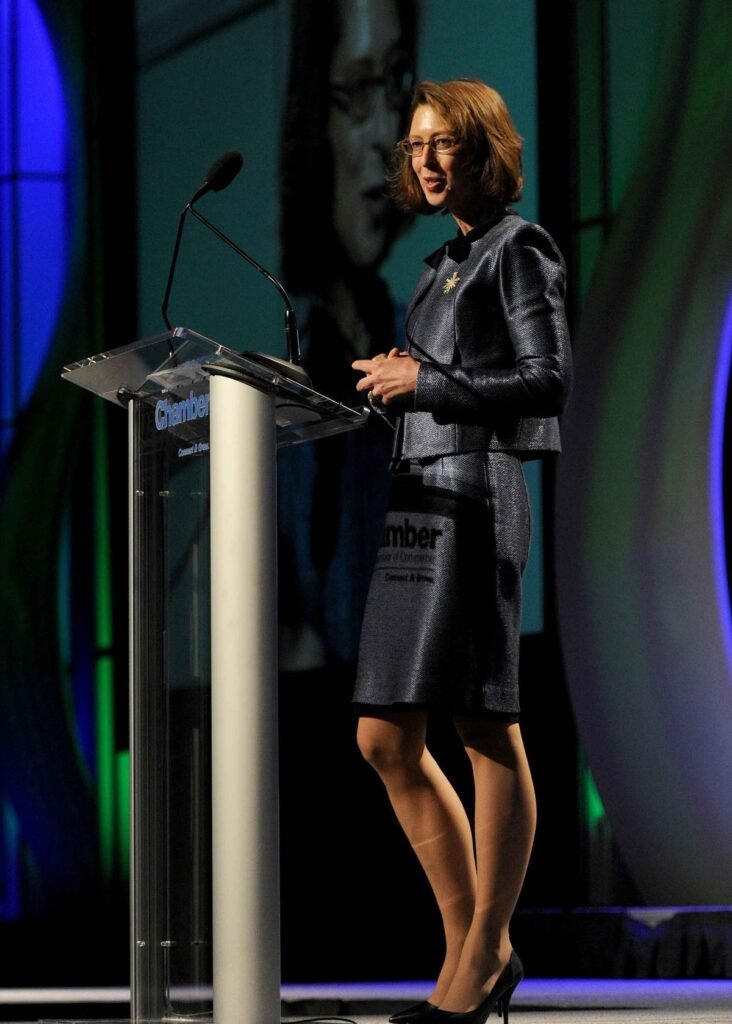
Abigail Johnson, the CEO of Fidelity Investments, is a trailblazing leader in the financial services industry, known for her strategic vision, commitment to innovation, and dedication to client service. In this article, we’ll explore Johnson’s background, her leadership at Fidelity, and her impact on the investment landscape.
Early Life and Education
Abigail Johnson was born in 1961 in Boston, Massachusetts, into the prominent Johnson family, which founded Fidelity Investments in 1946. She earned her bachelor’s degree in art history from Hobart and William Smith Colleges and later obtained an MBA from Harvard Business School.
Rising through the Ranks at Fidelity
Johnson began her career at Fidelity Investments in 1988, starting as an analyst and working her way up through various roles within the company. She gained experience in different areas of the business, including equity research, portfolio management, and client services. Her deep understanding of the company’s operations and her strategic insights positioned her as a natural leader within the organization.
Appointment as CEO
In 2014, Abigail Johnson succeeded her father, Edward C. Johnson III, as CEO of Fidelity Investments, becoming the third generation of her family to lead the company. Under her leadership, Fidelity has continued to evolve and adapt to the changing landscape of the financial services industry.
Embracing Innovation and Technology
Johnson has been a driving force behind Fidelity’s embrace of innovation and technology. She has championed initiatives to modernize the company’s technology infrastructure, improve digital experiences for clients, and develop new products and services to meet the evolving needs of investors.
Under Johnson’s leadership, Fidelity has launched innovative offerings such as Fidelity Digital Assets, a platform for institutional investors to trade and custody cryptocurrencies, and Fidelity Go, a robo-advisor service that provides automated investment management for retail clients.
Commitment to Client Service and Long-Term Investing
Throughout her tenure, Johnson has remained committed to Fidelity’s core principles of client service and long-term investing. She has emphasized the importance of building lasting relationships with clients, understanding their needs, and providing them with the tools and resources to achieve their financial goals.
Johnson has also been a vocal advocate for the benefits of long-term investing and the importance of staying disciplined in volatile markets. She believes in the power of diversification, asset allocation, and active management to help investors navigate market cycles and achieve better outcomes over time.
Conclusion
Abigail Johnson’s leadership at Fidelity Investments has been marked by innovation, vision, and a steadfast commitment to serving clients. As CEO, she has guided the company through periods of change and disruption, positioning it for continued success in the dynamic and competitive financial services industry.
Under Johnson’s stewardship, Fidelity Investments remains a trusted partner for millions of investors around the world, providing them with the tools, insights, and guidance they need to build secure financial futures. As she continues to lead Fidelity into the future, Johnson’s impact on the investment landscape is sure to endure.
11-Carlos Slim
Carlos Slim, the Mexican businessman and Chairman of Grupo Carso, is one of the world’s wealthiest individuals and a prominent figure in the global business community. Known for his entrepreneurial prowess, strategic investments, and philanthropic efforts, Slim’s impact extends far beyond the borders of Mexico. In this article, we’ll explore Slim’s background, his business empire, and his philanthropic initiatives.
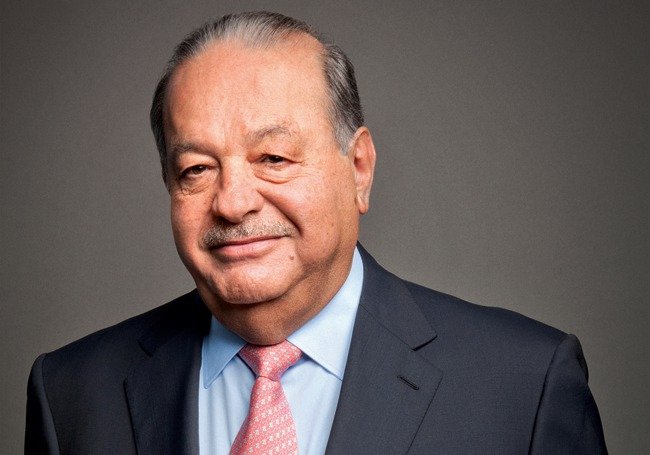
Early Life and Education
Carlos Slim Helú was born on January 28, 1940, in Mexico City. He was the son of Lebanese immigrants and grew up in a family of entrepreneurs. Slim studied civil engineering at the National Autonomous University of Mexico (UNAM) and later pursued a career in business.
Building a Business Empire
Slim’s business career began in the 1960s when he started investing in real estate and construction projects. He quickly diversified into various industries, including telecommunications, banking, retail, and infrastructure. Through strategic acquisitions and investments, Slim built Grupo Carso into a conglomerate with interests in telecommunications (including Telmex and América Móvil), retail (Grupo Sanborns), finance (Grupo Financiero Inbursa), and more.
Telecommunications Dominance
One of Slim’s most significant achievements is his dominance in the telecommunications industry. He acquired Telmex, Mexico’s state-owned telephone company, in the early 1990s and transformed it into a telecommunications giant. América Móvil, a subsidiary of Telmex, became one of the largest wireless telecommunications companies in Latin America and the dominant player in Mexico.
Philanthropy and Social Initiatives
Despite his immense wealth, Slim is known for his frugal lifestyle and his commitment to philanthropy. The Carlos Slim Foundation, established in 1986, focuses on improving education, healthcare, and cultural development in Mexico and Latin America. The foundation has supported initiatives such as the construction of hospitals, the promotion of arts and culture, and the funding of scholarships and educational programs.
Challenges and Criticisms
While Slim’s business success has earned him admiration, he has also faced criticism for his market dominance and alleged monopolistic practices, particularly in the telecommunications sector. Critics argue that his companies’ control over key industries has stifled competition and innovation, leading to higher prices and poorer service for consumers.
Legacy and Impact
Carlos Slim’s legacy extends beyond his business achievements. As one of the world’s leading philanthropists, he has made significant contributions to social development and poverty alleviation in Mexico and beyond. His business acumen, entrepreneurial spirit, and commitment to giving back have earned him respect and admiration worldwide, cementing his place as one of the most influential figures in global business and philanthropy.
Conclusion
Carlos Slim’s journey from humble beginnings to global business magnate is a testament to his resilience, vision, and determination. Through his business ventures and philanthropic endeavors, he has left an indelible mark on the world, improving the lives of millions and shaping the future of Mexico and Latin America. As he continues to lead Grupo Carso and invest in social initiatives, Slim’s impact will continue to be felt for generations to come.
12-Michael Bloomberg
Michael Bloomberg, the founder of Bloomberg LP and former Mayor of New York City, is a multifaceted figure whose influence spans the worlds of business, politics, and philanthropy. Known for his entrepreneurial spirit, innovative thinking, and commitment to public service, Bloomberg has left an indelible mark on the global stage. In this article, we’ll explore Bloomberg’s background, his achievements in business and politics, and his impact on society.
Early Life and Career
Michael Bloomberg was born on February 14, 1942, in Boston, Massachusetts. He studied engineering at Johns Hopkins University and went on to earn an MBA from Harvard Business School. After working on Wall Street for several years, Bloomberg founded his own company, Innovative Market Systems, in 1981. This company would later become Bloomberg LP, a global financial information and media company.
Founding Bloomberg LP
Bloomberg’s vision for his company was to provide real-time financial data and analytics to Wall Street professionals. Bloomberg LP revolutionized the financial industry with its Bloomberg Terminal, a computer software system that became an indispensable tool for traders, analysts, and investors around the world. Today, Bloomberg LP is a leading provider of financial news, data, and analytics, with a global reach and a diverse range of products and services.
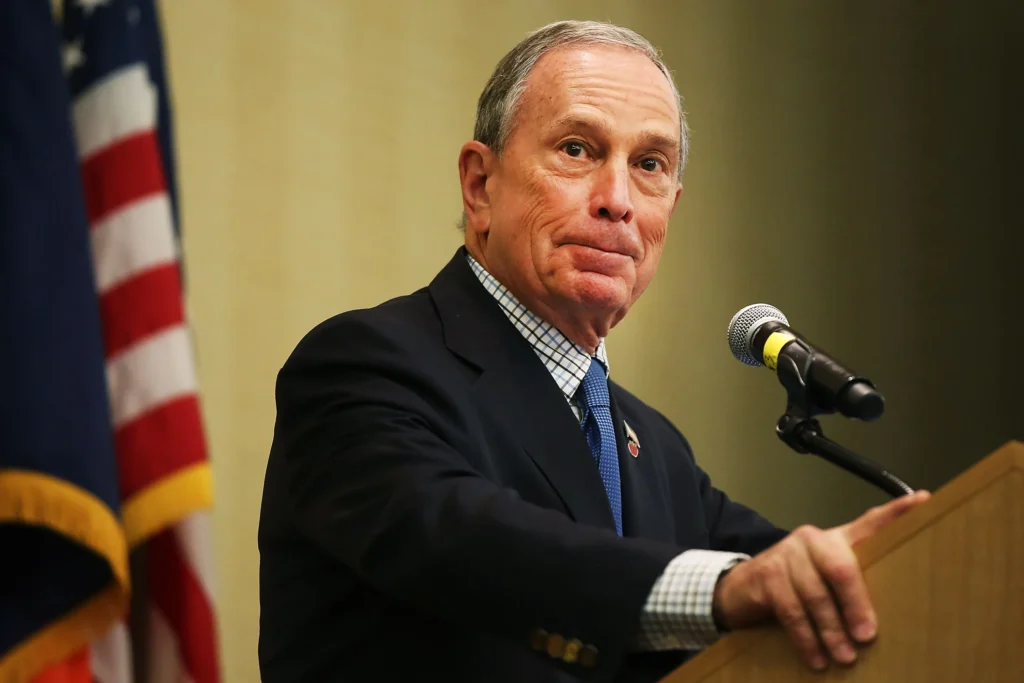
Mayor of New York City
In 2001, Bloomberg made the bold decision to enter politics, running for Mayor of New York City as a Republican. He won the election and served as mayor for three terms, from 2002 to 2013. Bloomberg’s tenure as mayor was marked by efforts to revitalize the city’s economy, improve public health, and enhance public safety.
Achievements as Mayor
During his time in office, Bloomberg implemented innovative policies such as the smoking ban in bars and restaurants, the introduction of bike lanes, and the implementation of data-driven policing strategies. He also focused on education reform, economic development, and environmental sustainability, earning praise for his pragmatic and results-oriented approach to governance.
Philanthropy and Advocacy
Throughout his career, Bloomberg has been a committed philanthropist and advocate for a wide range of causes. He has donated billions of dollars to organizations working on issues such as public health, education, the environment, and gun control. Bloomberg’s philanthropic efforts include funding initiatives to combat climate change, improve public health, and promote democracy around the world.
Conclusion
Michael Bloomberg’s impact on business, politics, and philanthropy is profound and far-reaching. As the founder of Bloomberg LP, he revolutionized the financial industry and built a global empire. As Mayor of New York City, he demonstrated his leadership and vision, leaving a lasting legacy of innovation and progress. Through his philanthropy and advocacy, Bloomberg continues to work towards creating a better world for future generations. As he remains active in various endeavors, his influence and impact will undoubtedly continue to shape the world for years to come.
13-Lloyd Blankfein
Lloyd Blankfein, the former CEO of Goldman Sachs, is a towering figure in the world of finance, known for his strategic acumen, resilience, and transformative leadership at one of the most prestigious investment banks. In this article, we’ll explore Blankfein’s background, his tenure at Goldman Sachs, and his enduring impact on the financial industry.
Early Life and Education
Lloyd Blankfein was born in the Bronx, New York, in 1954, to a working-class family. He attended Harvard College, where he earned a degree in history before going on to study law at Harvard Law School. After graduating, Blankfein worked as a lawyer before transitioning to investment banking.
Rise to CEO of Goldman Sachs
Blankfein joined Goldman Sachs in 1982 as a gold salesman and quickly rose through the ranks. He held various leadership positions within the firm, including co-head of the J. Aron Currency and Commodities Division and president and chief operating officer. In 2006, Blankfein was appointed CEO, succeeding Henry Paulson, who went on to become the U.S. Treasury Secretary.
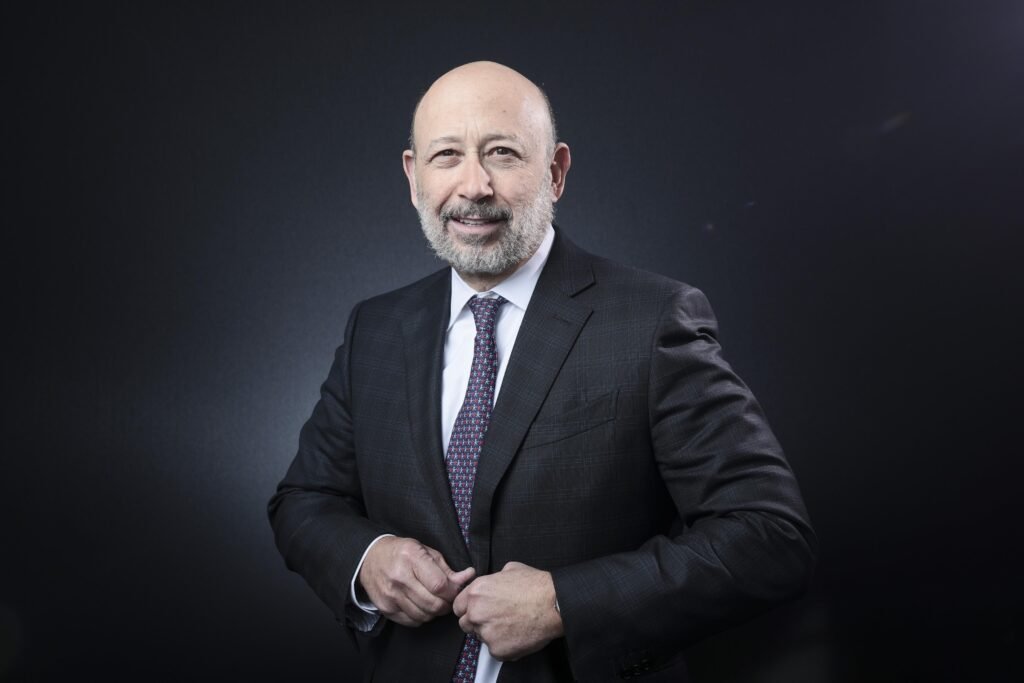
Navigating the Financial Crisis
Blankfein’s tenure as CEO was defined by the challenges posed by the global financial crisis of 2008. During this tumultuous period, Goldman Sachs faced intense scrutiny and criticism for its role in the crisis. Blankfein led the firm through this turbulent time, implementing measures to strengthen its balance sheet, restore investor confidence, and navigate the regulatory landscape.
Transformation and Growth
Under Blankfein’s leadership, Goldman Sachs expanded its global footprint and diversified its business lines. The firm ventured into new areas such as consumer banking, asset management, and electronic trading. Blankfein’s strategic vision and willingness to adapt to changing market dynamics helped Goldman Sachs remain a dominant force in investment banking.
Commitment to Diversity and Inclusion
Blankfein was also a vocal advocate for diversity and inclusion within Goldman Sachs and the broader financial industry. He championed initiatives to increase the representation of women and minorities in leadership positions and supported programs aimed at fostering a more inclusive workplace culture.
Legacy and Impact
Lloyd Blankfein’s legacy at Goldman Sachs is one of resilience, innovation, and leadership. Despite facing challenges and controversies during his tenure, he guided the firm through some of the most turbulent times in its history and positioned it for continued success in the future.
As Blankfein moves on from his role as CEO, his impact on Goldman Sachs and the financial industry as a whole will endure. His strategic foresight, commitment to excellence, and dedication to fostering a culture of integrity and inclusion have left an indelible mark on the firm and its employees14.
14-Jack Ma
Jack Ma, the co-founder of Alibaba Group, is a visionary entrepreneur whose pioneering work has transformed the landscape of e-commerce and digital innovation in China and beyond. In this article, we’ll delve into Jack Ma’s background, his journey with Alibaba Group, and his impact on the world of business.
Early Life and Education
Jack Ma, whose birth name is Ma Yun, was born on September 10, 1964, in Hangzhou, Zhejiang Province, China. Despite facing numerous setbacks and rejections, Ma displayed a remarkable entrepreneurial spirit from a young age. He failed the college entrance exam twice but eventually graduated with a bachelor’s degree in English from Hangzhou Normal University.
Founding Alibaba Group
In 1999, Jack Ma co-founded Alibaba Group, initially as a business-to-business (B2B) online marketplace. His vision was to create a platform that would connect Chinese manufacturers with buyers around the world. Despite facing skepticism and challenges, Alibaba grew rapidly, expanding its services to include consumer e-commerce, cloud computing, digital payments, and more.

E-Commerce Empire
Under Jack Ma’s leadership, Alibaba became one of the world’s largest and most influential technology companies. Its flagship platform, Taobao, revolutionized the way Chinese consumers shop online, while Tmall provided a platform for brands to reach Chinese consumers directly. Alibaba’s success propelled Ma to become one of China’s richest individuals and a global icon of entrepreneurship.
Global Expansion and Innovation
In addition to its dominance in the Chinese market, Alibaba has expanded its reach globally, with investments in e-commerce, cloud computing, and digital entertainment. Jack Ma’s vision for Alibaba extends beyond e-commerce, with investments in areas such as artificial intelligence, fintech, and logistics, aiming to shape the future of technology and commerce.
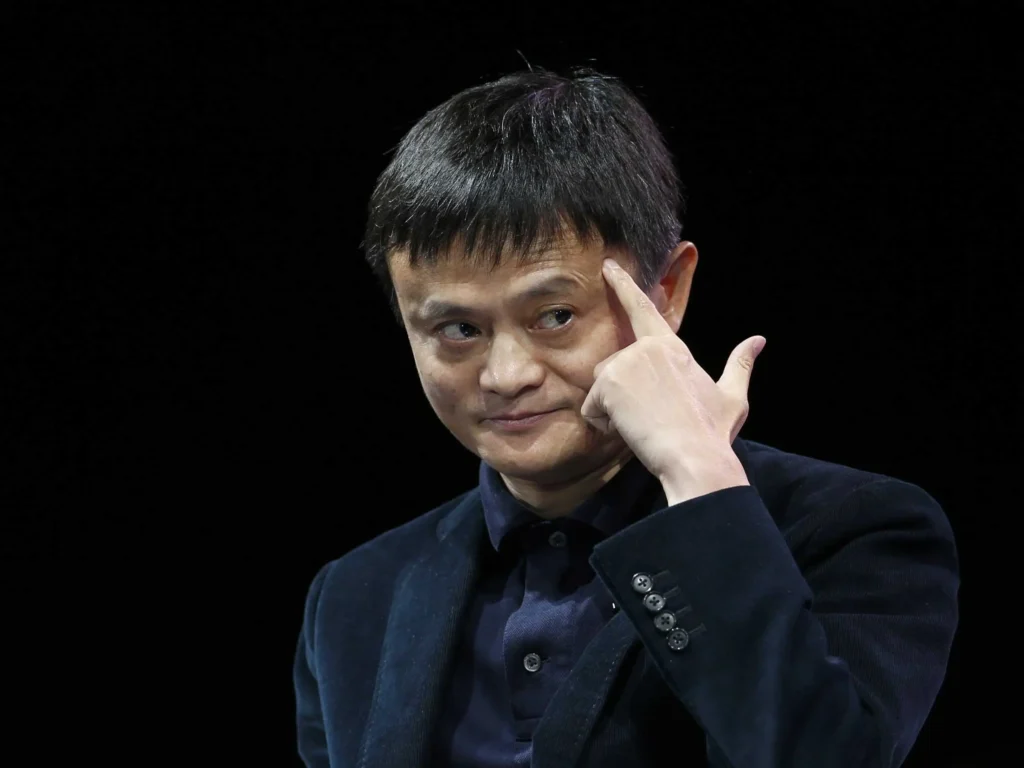
Philanthropy and Social Impact
Jack Ma is also known for his philanthropic efforts and advocacy for social causes. He established the Jack Ma Foundation, which focuses on education, environmental protection, and public health. The foundation has launched initiatives such as the Rural Teachers Program, which aims to improve education in rural China, and the Alibaba Poverty Relief Fund, which supports poverty alleviation efforts.
Challenges and Controversies
Despite his success, Jack Ma has faced scrutiny and criticism, particularly from Chinese regulators. In recent years, Alibaba has been the subject of antitrust investigations, and Ma himself has faced pressure from the Chinese government over his public statements and business practices.
Legacy and Vision
Jack Ma’s legacy extends far beyond Alibaba Group. He is admired for his entrepreneurial spirit, innovative thinking, and commitment to empowering small businesses and fostering economic growth. As he steps back from his role at Alibaba, Ma remains a leading figure in the global tech industry, continuing to inspire future generations of entrepreneurs with his vision and passion for innovation.
15-Mukesh A mbani

Mukesh Ambani, the Chairman and CEO of Reliance Industries Limited, is a visionary business leader who has played a pivotal role in shaping India’s economy and driving innovation across various sectors. In this article, we’ll explore Mukesh Ambani’s journey, his leadership at Reliance Industries, and his impact on India’s business landscape.
Early Life and Education
Mukesh Ambani was born on April 19, 1957, in Aden, Yemen, to Dhirubhai Ambani, the founder of Reliance Industries, and Kokilaben Ambani. He pursued chemical engineering at the University of Mumbai and later obtained an MBA from Stanford University in the United States.
Taking the Helm at Reliance Industries
Mukesh Ambani joined Reliance Industries in 1981 and quickly rose through the ranks, eventually taking over as Chairman and CEO after his father’s passing in 2002. Under his leadership, Reliance Industries has grown into one of India’s largest conglomerates, with interests in petrochemicals, refining, oil and gas exploration, telecommunications, retail, and more.
Revolutionizing the Telecom Industry
One of Mukesh Ambani’s most significant achievements has been the launch of Jio, a telecommunications venture that disrupted the Indian telecom market. Jio’s entry into the market in 2016 with its affordable 4G services revolutionized the way Indians access the internet and communicate, leading to a dramatic increase in internet penetration and digital inclusion across the country.
Expanding into Digital Services and Retail
Building on the success of Jio, Mukesh Ambani has diversified Reliance Industries’ business into digital services and retail. Jio Platforms, the digital arm of Reliance Industries, has become a powerhouse in India’s digital ecosystem, offering services such as JioMart (an e-commerce platform), JioSaavn (a music streaming service), and JioMeet (a video conferencing platform).
Reliance Retail, the retail arm of Reliance Industries, operates one of the largest retail chains in India, with a diverse portfolio of stores spanning grocery, electronics, fashion, and more. Ambani’s strategic investments in digital and retail have positioned Reliance Industries as a leader in India’s digital transformation and consumer retail space.
Commitment to Sustainability and Innovation
Mukesh Ambani is also committed to sustainability and innovation. Reliance Industries has made significant investments in renewable energy, aiming to reduce its carbon footprint and contribute to India’s clean energy transition. Additionally, Ambani has spearheaded initiatives to foster innovation and entrepreneurship through programs such as JioGenNext, which supports startups in India.
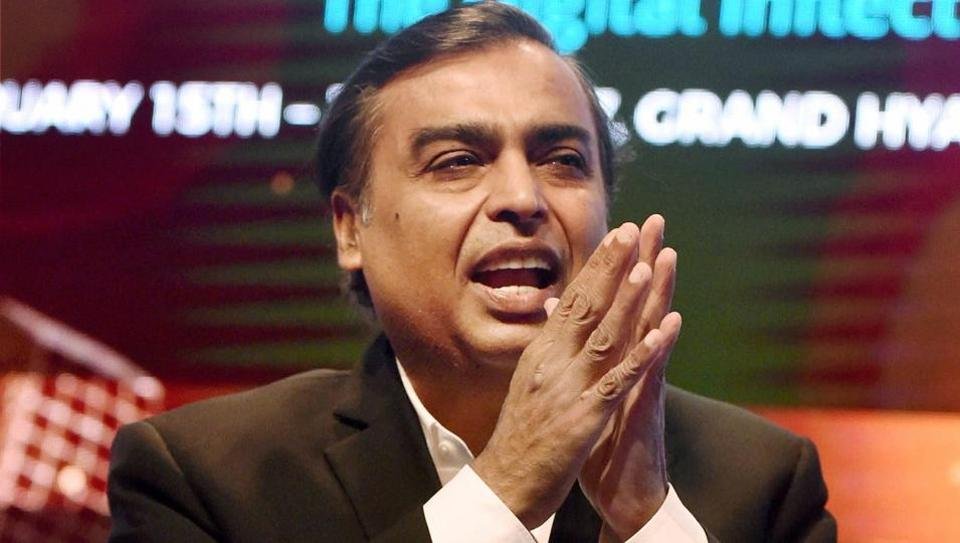
Philanthropy and Social Initiatives
Mukesh Ambani and his family are active philanthropists, supporting various social causes through the Reliance Foundation. The foundation focuses on areas such as education, healthcare, rural development, and disaster response, making a positive impact on the lives of millions of Indians.
Conclusion
Mukesh Ambani’s leadership at Reliance Industries has been characterized by innovation, vision, and a commitment to driving India’s growth and development. His strategic investments in telecommunications, digital services, and retail have transformed industries and empowered millions of Indians. As Ambani continues to steer Reliance Industries into the future, his impact on India’s economy and society is sure to endure for years to come.
16-Raghuram Rajan

Raghuram Rajan, a renowned economist and former Governor of the Reserve Bank of India (RBI), is widely regarded for his expertise in monetary policy, financial stability, and economic reforms. In this article, we’ll explore Rajan’s distinguished career, his tenure at the RBI, and his significant contributions to India’s economic landscape.
Early Life and Education
Born on February 3, 1963, in Bhopal, India, Raghuram Rajan pursued his education at the Indian Institute of Technology, Delhi, where he earned a bachelor’s degree in electrical engineering. He later obtained a postgraduate diploma in Business Administration from the Indian Institute of Management, Ahmedabad, and a Ph.D. in Economics from the Massachusetts Institute of Technology (MIT).
Academic and Professional Achievements
Rajan’s academic career is illustrious, with appointments at prestigious institutions such as the University of Chicago Booth School of Business and the International Monetary Fund (IMF). He gained international recognition for his research on banking, corporate finance, and economic development, earning numerous awards and accolades for his contributions to the field of economics.
Tenure as Governor of the RBI
In September 2013, Raghuram Rajan assumed the role of Governor of the Reserve Bank of India, India’s central bank, amid challenging economic conditions. During his tenure, he implemented a series of reforms aimed at strengthening India’s financial system, enhancing monetary policy effectiveness, and promoting economic growth.
Strengthening Financial Stability
One of Rajan’s key priorities as RBI Governor was to address the issue of non-performing assets (NPAs) in the Indian banking sector. He initiated measures to clean up bank balance sheets, improve transparency, and strengthen regulatory oversight to mitigate financial risks and restore investor confidence.
Monetary Policy and Inflation Targeting
Under Rajan’s leadership, the RBI introduced inflation targeting as a framework for monetary policy, aiming to achieve price stability while supporting economic growth. His prudent approach to interest rate management and macroeconomic policy helped stabilize inflation and anchor inflation expectations in the Indian economy.
Promoting Financial Inclusion and Innovation
Rajan also championed initiatives to promote financial inclusion and innovation in India’s banking sector. He encouraged the adoption of digital payment technologies, supported the expansion of banking services to underserved areas, and advocated for reforms to enhance the efficiency and competitiveness of the financial system.
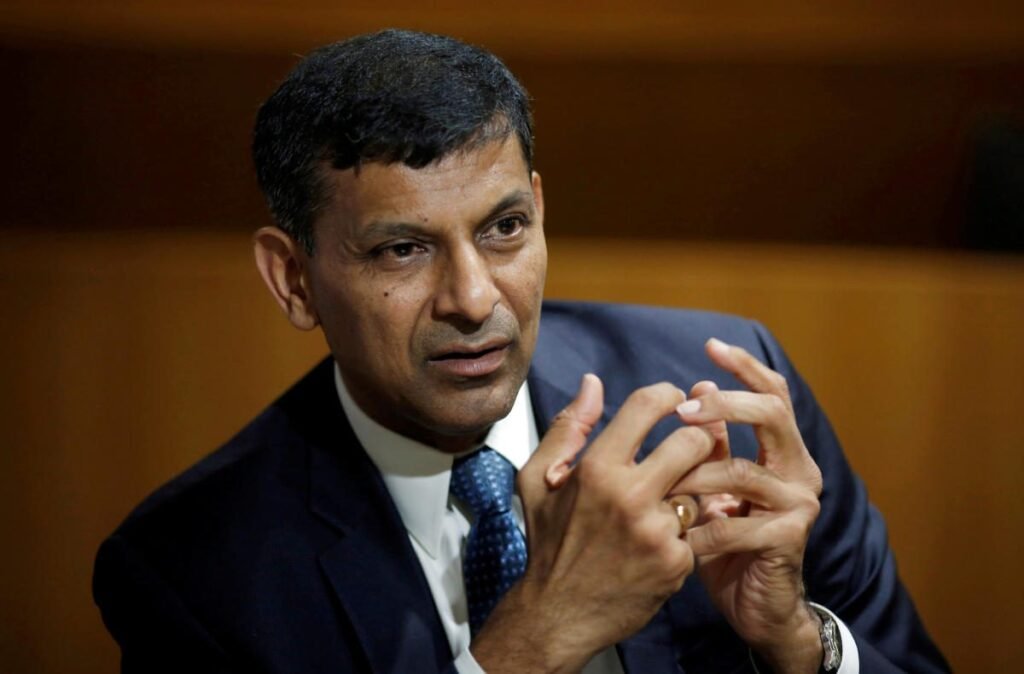
Global Recognition and Influence
Raghuram Rajan’s tenure at the RBI garnered widespread acclaim both domestically and internationally. He was recognized for his foresight, integrity, and effective communication skills, which earned him the trust of policymakers, investors, and the public alike.
Post-RBI Career and Advocacy
Since leaving the RBI in 2016, Rajan has continued to be a leading voice on global economic issues. He has authored several books and articles on topics ranging from financial regulation to inequality, and he remains actively engaged in academic research, public speaking, and policy advocacy.
Conclusion
Raghuram Rajan’s tenure as Governor of the Reserve Bank of India left an indelible mark on the country’s economic landscape. His leadership, intellect, and commitment to reform have positioned him as one of the most influential economists of his generation. As India continues its journey towards economic development and financial stability, Rajan’s insights and contributions will continue to shape policy discussions and inspire future generations of economists and policymakers.
17-George Soros

George Soros, a renowned investor and philanthropist, has left an indelible mark on the global financial landscape and social change through his successful investment strategies and his commitment to promoting democracy and human rights. In this article, we’ll delve into Soros’s remarkable career, his philanthropic endeavors, and his enduring influence on global affairs.
Early Life and Education
Born on August 12, 1930, in Budapest, Hungary, George Soros survived the Nazi occupation of Hungary during World War II before fleeing to England in 1947. He attended the London School of Economics, where he studied under philosopher Karl Popper, whose ideas on open societies would later influence Soros’s philanthropic work.
Investment Success and the Quantum Fund
Soros began his career in finance at various merchant banks before founding his own hedge fund, Soros Fund Management, in 1969. He gained international fame for his role in “breaking the Bank of England” in 1992 when he made a billion-dollar profit by shorting the British pound during the Black Wednesday currency crisis.
Philanthropy and Open Society Foundations
George Soros is perhaps equally known for his philanthropic efforts as for his investment acumen. In 1979, he established the Open Society Foundations (OSF), a network of philanthropic organizations dedicated to promoting democracy, human rights, and social justice around the world. OSF operates in over 120 countries, supporting a wide range of initiatives, from education and public health to media freedom and criminal justice reform.
Support for Democracy and Civil Society
Through the Open Society Foundations, Soros has been a staunch supporter of democratic movements and civil society organizations, particularly in countries transitioning from authoritarian rule. He has provided financial and organizational support to grassroots movements, independent media outlets, and human rights defenders, often in the face of government repression and opposition.

Controversy and Criticism
Soros’s activism and support for progressive causes have made him a target of criticism from political opponents and conspiracy theorists alike. He has been vilified by some for his financial activities and accused of interfering in the politics of various countries. However, Soros remains undeterred in his commitment to promoting open societies and advancing human rights.
Legacy and Impact
George Soros’s legacy extends far beyond the financial realm. Through his philanthropy and advocacy, he has played a significant role in shaping the course of global politics and social change. His support for democratic institutions, human rights, and progressive causes has had a lasting impact on societies around the world, inspiring others to join the fight for a more just and equitable world.
Conclusion
George Soros’s life and career exemplify the power of combining financial success with a commitment to social justice and humanitarian causes. As an investor, philanthropist, and advocate for open societies, Soros has demonstrated the transformative potential of wealth when used to advance the common good. His legacy will continue to inspire future generations to strive for a world where democracy, human rights, and equality are upheld for all.
18-Tim Cook
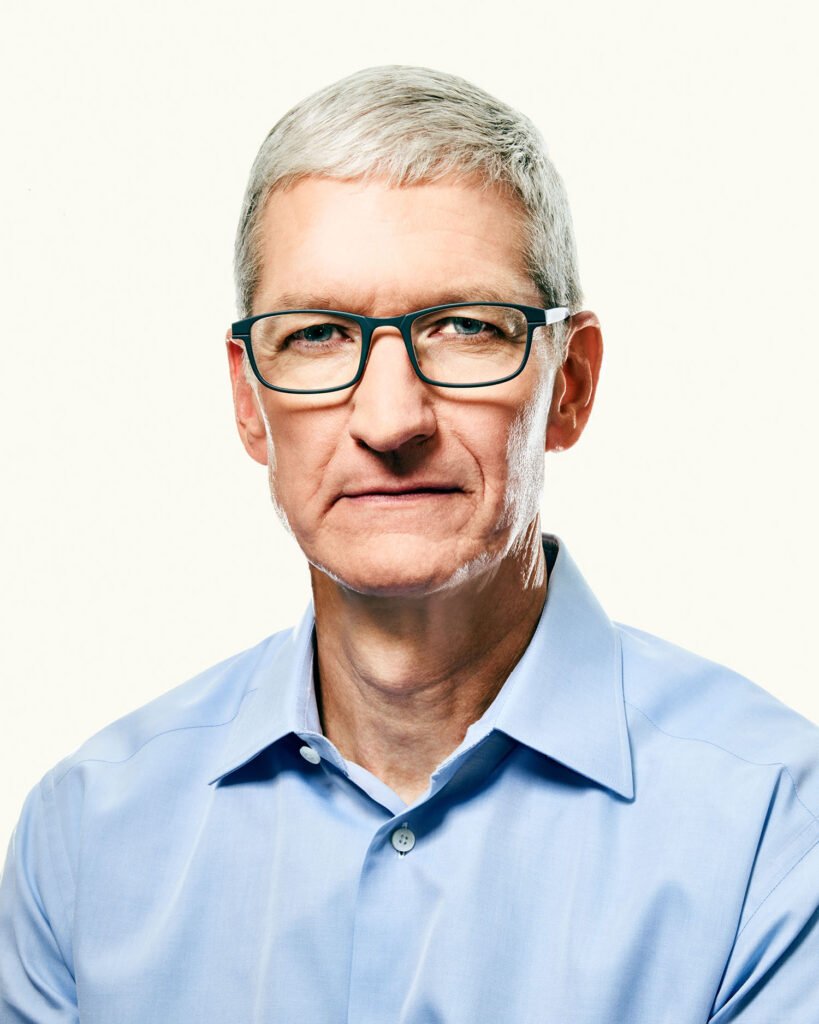
Tim Cook, the CEO of Apple, is a transformative leader who has steered the tech giant through a period of unprecedented innovation and growth while championing social responsibility and sustainability. In this article, we’ll explore Cook’s background, his tenure at Apple, and his impact on the company and the world.
Early Life and Career
Tim Cook was born on November 1, 1960, in Mobile, Alabama. He earned a bachelor’s degree in Industrial Engineering from Auburn University and an MBA from Duke University’s Fuqua School of Business. Cook’s early career included positions at IBM and Compaq before he joined Apple in 1998 as Senior Vice President for Worldwide Operations.
Succession as CEO
In August 2011, Tim Cook was named CEO of Apple, succeeding co-founder Steve Jobs. Cook faced the daunting task of following in Jobs’s footsteps, but he quickly proved himself as a capable leader with a keen focus on operational efficiency, supply chain management, and product innovation.
Innovation and Product Development
Under Tim Cook’s leadership, Apple has continued to innovate and release groundbreaking products that have reshaped entire industries. Cook oversaw the launch of iconic products such as the iPhone, iPad, Apple Watch, and AirPods, while also expanding Apple’s services division with offerings like Apple Music, iCloud, and Apple TV+.
Commitment to Social Responsibility
Tim Cook has been a vocal advocate for social responsibility and ethical business practices. Under his leadership, Apple has made significant strides in areas such as environmental sustainability, labor rights, and privacy protection. Cook has championed renewable energy initiatives, committed to reducing Apple’s carbon footprint, and prioritized worker welfare in Apple’s supply chain.
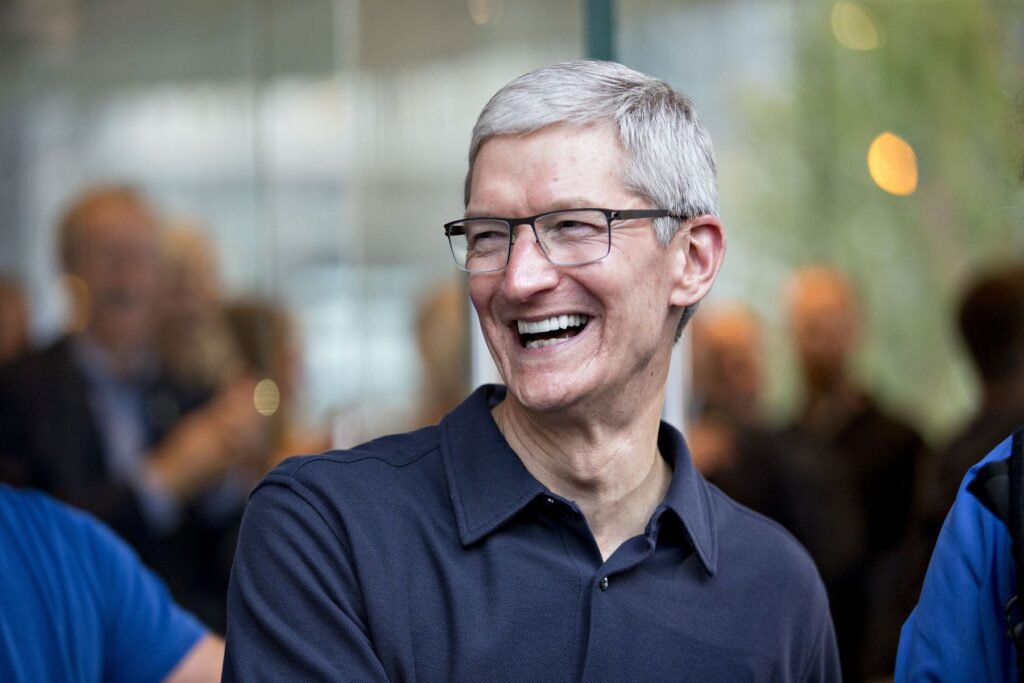
Diversity and Inclusion
Cook has also been a strong proponent of diversity and inclusion within Apple and the tech industry at large. He has worked to increase the representation of women and underrepresented minorities in Apple’s workforce and leadership positions. Cook believes that diverse perspectives are essential for driving innovation and creating products that reflect the needs of all users.
Privacy Advocacy
Privacy has been a cornerstone of Tim Cook’s leadership at Apple. He has repeatedly spoken out against data collection and surveillance practices that infringe on user privacy, positioning Apple as a champion for consumer privacy rights. Cook has famously stated that privacy is a fundamental human right and has implemented features such as App Tracking Transparency to give users more control over their data.
Conclusion
Tim Cook’s tenure as CEO of Apple has been marked by innovation, social responsibility, and a commitment to values-driven leadership. Under his guidance, Apple has continued to push the boundaries of technology while also striving to make a positive impact on society and the environment. As Apple continues to evolve and tackle new challenges, Tim Cook’s vision and leadership will undoubtedly play a crucial role in shaping the company’s future and its legacy in the tech industry.



